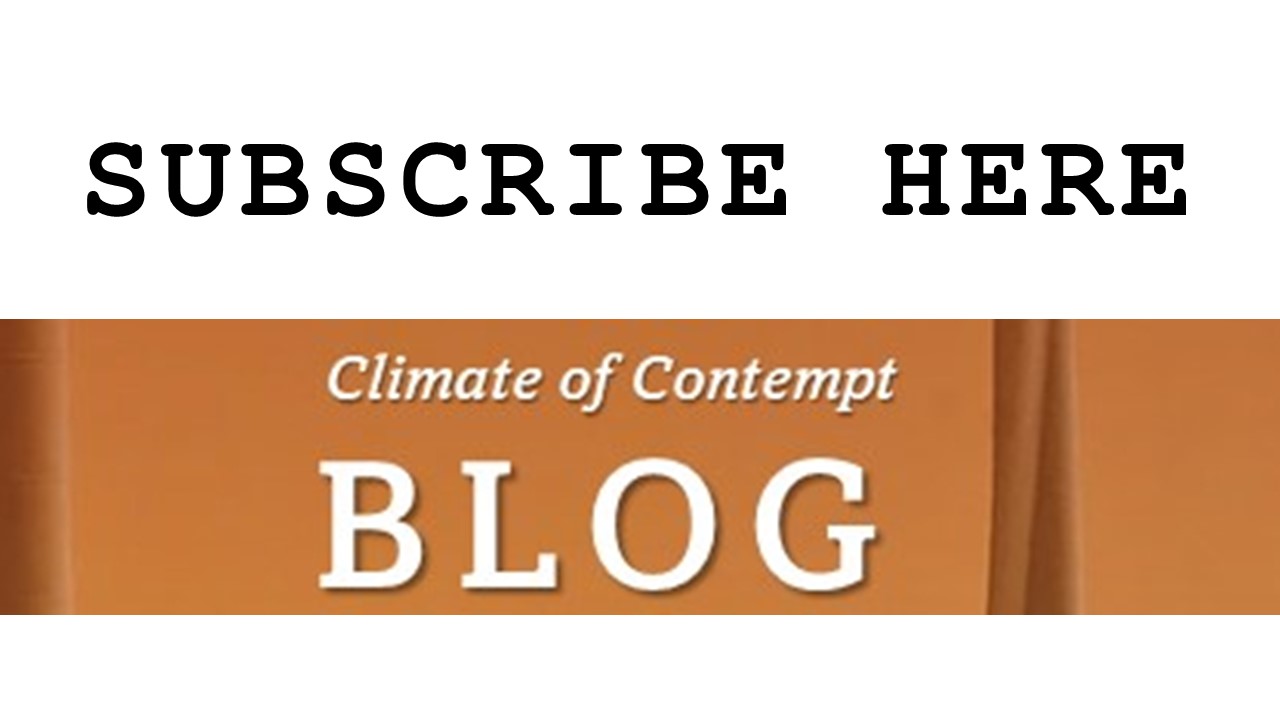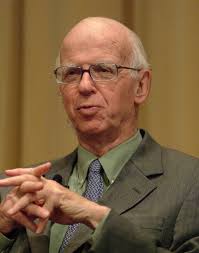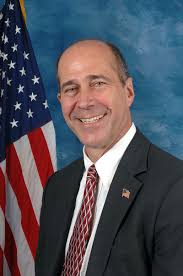Charlie Cook, founder of the Cook Political Report (CPR), wrote a column last month for CPR (behind a pay wall) about gerrymandering that began this way:
After 47 years at The Washington Post, Dan Balz recently announced he is stepping back from his role as the paper’s top political reporter and columnist. Balz was a protégé of the revered David Broder, often called the dean of Washington political reporters. Both long represented political journalism at its finest.
The article went on to explain why gerrymandering is particularly effective these days, but I kept thinking about that first paragraph. It reminded me that it is important to remember (or, for young people, to understand) the kind of political news coverage that David Broder and his peers once provided, and what its disappearance means.
Empirical Truth vs. Anecdotes
Academic political scientists of a certain age will remember David Broder’s regular attendance at the annual meetings of the American Political Science Association, where he could be seen prowling the halls carrying a large stack of new academic papers he had gathered. He did this in order update his understanding of how American politics actually works.
Presumably, Broder knew that politicians’ and political operatives’ understanding of their work is skewed by their lack of objectivity, and how human biases distort our understanding “what is true” when we feel strongly about “what you want to to be true.” Academic analyses, by contrast, are prepared by people who at least aspire to objectivity (or ought to), whose work must pass peer review, and who actually measure things to determine if popular intuitions about how things work are in fact, accurate. It is much more circumspect than folk wisdom.
Today, partisan ideological polarization has us thinking of our own policy agendas as particularly morally urgent. At the same time news reporting has been segmented into ever narrower specialty audiences, and both advocacy journalism and some strains of academic thought have embraced the notion that aspiring to objectivity is futile. Consequently, the kind of circumspect reporting represented by Broder is being crowded out by a form of “news” that aims to persuade readers as much as it tries to inform them. The casualty of all that is trust in the media and the rise of “make your own facts” politics.
Circumspection is difficult in this environment. As journalists watch right wing media winding up the MAGA base with invitations to believe all sorts of falsehoods — “the 2020 election was stolen,” “climate change is a hoax” — there is a temptation to want to spin in the opposite direction. And with that comes the temptation to ignore empirical standards and to let an anecdote suffice to support the proposition we want the reader to believe. Unfortunately, as my UT colleague and communications professor John Daly likes to say, “a good story beats data every time.”
That is a problem. Reporters are professional storytellers who get to write the first draft of history. They have a special responsibility to frame stories in ways that avoid leading readers to hasty or incorrect inferences about the state of the world. But in an angry, frustrated, and cynical political world, that journalistic norm is weakening.
Identifying Subtle Spin
All of which makes it more important than ever for readers to be able to identify the subtle ways in which writers frame their articles for persuasive effect — often inadvertently. I have used this blog to try to highlight those sorts of framing problems (see examples here). Let me offer a few more examples.
The first example comes from an August 18th piece from Politico’s Energy & Environment news service entitled “Cuomo’s Indian Point shutdown haunts NYC’s electric mix.” The gist of the story is factually correct. Then-governor Andrew Cuomo supported the early shutdown of the Indian Point nuclear reactor in the Hudson Valley, which in turn resulted in more natural gas-fired power production in downstate New York. But as someone who finds Cuomo’s ethical failings repellent (see here and here), even I can see that the story is framed in ways that are particularly unfriendly to Cuomo.
Indian Point closure had been a goal of Hudson Valley citizens and environmental activists for almost 50 years. It was a feature of a campaign by popular musicians in the late 1970s[1] and the 1980 documentary “No Nukes.” In the intervening years the pressure to close it on safety grounds was relentless. Cuomo’s endorsement of its closure probably reflected the dominant opinion among New York Democrats at the time. That history is missing from the story. Indeed, it is not until the story’s 27th paragraph that we learn that the Cuomo administration was worried about the cost of the shutdown and took actions to try to mitigate supply concerns associated with the shutdown.[2] Cuomo is a candidate in the New York City mayoral race, and to New York City voters who are unfamiliar with the history of anti-Indian Point activism, this article invites them to add a black mark to the Cuomo column.
The second example comes from an August 19th Heatmap News piece entitled “Can Private Equity Give Minnesota Carbon-Free Electricity?” As with Politico’s E&E News, I subscribe to Heatmap and value their reporting. But readers of this blog will know the problem with the following sentence from the article: “Consumer advocates habitually suspect utilities of … maintaining excessive – if not corrupt — proximity to regulators and politicians designated to oversee them, suspicions that have proved correct over and over again.”
In support of this statement the writer offers only links to two recent incidents of electric utilities exercising corrupt influence over politicians in Ohio and Illinois. Of course, those two anecdotal examples illustrate that corruption sometimes happens, but not the writer’s suggestion that corruption influences outcomes most – or even much – of the time. (Here’s a recent podcast asserting the same sloppy generalization citing the same two anecdotes.)
In Climate of Contempt I review what empirical social research has to say about corporate influence and the role of money in politics (pp. 35-42) and on the capture of regulatory agencies (pp. 71-74). That research contradicts the writer’s characterization, something he would have known had he emulated David Broder in his attention to the academic literature that governs his beat.
Trivial Mistakes?
Little mistakes in reporting often support a narrative that the writer wants to convey. Individually, each is trivial; collectively, they build a picture in the reader’s mind.
Consider a third example: In an August 18th Politico E&E piece called “Trump hates climate policy. So why is he boosting carbon capture?” It highlights the supposed discrepancy between (1) the One Big Beautiful Bill’s (OBBB) expansion of tax credits for carbon capture and sequestration (CCS), on the one hand, and (2) the DOE’s cancellation of grants and loans for CCS projects, on the other.
There is plenty of illogic in the Administration’s energy policy, and this article is educational and worth reading. But it suggests a specific logical conflict that isn’t there. GOP politicians have some logically-consistent explanations for these decisions, whether you agree with them or not. One of these is mentioned in the article: namely, the idea that sequestration of carbon is sometimes done to enhance oil production, and so the expansion of the tax credit can be viewed as an anti-climate measure. But many of the members of Congress who supported retention of the tax credit — including, presumably, some Republicans — favored it as a climate measure. And the main reason why the Administration has canceled all sorts of grants and loans for energy projects is that it has been trying to claw back as much of that money as it can in order to try to shrink the budge deficit (or its growth). Cancelling CCS project grants and loans aids in that process, even if the OBBB gives some of what the DOE takes away.
But highlighting the most cynical explanations (and omitting less cynical ones) is fairly common these days, because cynicism affects our intuitive sense of what the likely drivers of policy outcomes are.
A final, fourth example comes from a September 16 Politico story called “Trump ‘s energy EOs go on trial.” In it the author writes that an upcoming Montana climate liability case “mark[s] the first time a federal judge will hear testimony on climate change — from scientists, psychologists, [and] climate modelers …” It looks like this idea came from one of the litigants’ attorneys, and the writer did not verify it. But it’s wrong. In 2018, a federal judge held an almost identical hearing in a very similar case. So no, it is not the first time. We can’t know the reason for the reporter’s credulity about this detail, but this framing adds a bit of excitement to the story, and fits a narrative that the truth has been suppressed — somehow, by someone — until now.
Conclusion
When David Broder died in 2011, his eulogizers already sensed that they were losing more than a great reporter and person. (See here, here, and here.) Today, as the Trump Administration takes a sledgehammer to free speech, scientific truths and the institutions that rely on them, a quicker, less careful form of journalism has become a norm. One might ask, then, why the left should care about its own counter-spin? The answer is that political strategy based on false belief is more likely to fail. Understanding the whole truth is always the best starting point.
In today’s hyper-competitive, hyper-fragmented media landscape it is probably unreasonable to expect writers to be as diligent as David Broder about checking their understanding of energy politics against empirical truths. But it would be nice if more of them were more diligent about it. When these errors become common enough, they feed mistaken impressions of how policymaking works. It puts the onus on readers, and the best advice for readers is to resist reporting that either feels too comfortable, or pushes you toward feelings of contempt for actors on “the other side.” As always, try to be more curious and less judgmental. — David Spence
—————-
[1] One of the musicians featured in the documentary, John Hall, later represented the Hudson Valley for three terms in the House of Representatives. He is the composer of a song featured in the documentary called “Power,” which features includes a lyric suggesting that fossil fuels are preferable to “atomic poison power.” You can find that song on the energy transition playlist created for my book, here.
[2] The story reports that the current NYC “mayoral front-runner, Democratic nominee Zohran Mamdani, has largely been silent on nuclear power … [and that he] has backed a build out of renewable energy ….” Progressives have been of two minds about nuclear power, and it is smart politics for Mamdani to play his cards close to the vest on this question right now. Like fellow progressives Bernie Sanders and Alexandria Ocasio-Cortez, Mamdani is a member of the Democratic Socialists of America (DSA). Sanders has consistently opposed nuclear power while Ocasio-Cortez’s position on the issue is less clear.





